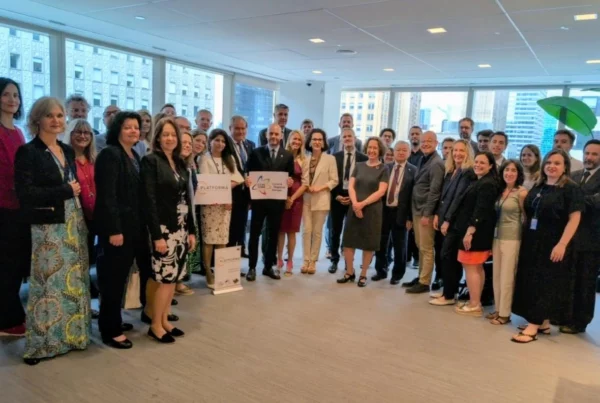Stefano Bonaccini: Strong local and regional governments are crucial to tackling COVID-19
This op-ed by CEMR President Stefano Bonaccini was first published by EUobserver.
The COVID-19 pandemic is an unprecedented situation for virtually all of Europe’s citizens, territories and Union. So far, over a million Europeans have been infected and 100,000 have died from this disease. These grim figures can only increase in the coming weeks and months. All of our lives have been affected in one way or another.
As President of the Italian Region of Emilia-Romagna and of the Council of European Municipalities and Regions, I have witnessed first-hand the efforts and sacrifices of our doctors, nurses, police officers, waste collectors, civil servants, volunteers and countless others in the struggle to protect our citizens from the virus and continue to serve their community.
As is often the case during crises, municipalities and regions are on the frontlines against this pandemic. They continue to provide essential services all the while doing their utmost to limit the risk of further infection. Simultaneously, local governments face huge shortfalls in revenue due to the collapse in business activity and general economic slowdown, as well as the closure of theatres, museums and sports facilities. In Italy alone, cities face a shortfall in revenue estimated around €3 billion.
At a time when solidarity was needed, European States’ initial response was dismaying. Nationalistic reflexes reappeared in many countries, with export embargoes on certain medical products and even expressions of xenophobia. All EU countries and levels of government must now work together to fight this virus, which respects neither borders nor nationalities and restore our continent’s well-being.
We have been happy to see the swift mobilisation of resources by the European institutions. More will have to be done however to overcome this crisis and be better prepared for the next one. The Council of European Municipalities and Regions and its members are committed to a strong and united Europe, based on joint action, shared values, and solidarity.
Though EU Cohesion Policy is not designed to respond to emergency situations, it will in this crisis show its usefulness as a concrete expression of European solidarity. The European Commission’s new Coronavirus Response Investment Initiative (CRII), allocating unspent cohesion funds to help municipalities and regions to handle the crisis, will provide much-needed support.
It is true that the new financial assistance will not be sufficient and will even be marginal compared to the large-scale national support schemes that are being prepared in the Member States. Beyond the emergency response, CEMR urges the Commission to consider extraordinary measures for 2021 to ensure continuity of response to the economic and social challenges that are only beginning to emerge.
More generally, we call on the European Commission to work with us and Member States to include the national associations of local and regional governments in their immediate and long-term working groups responding to coronavirus.
Why? Because, our expertise, knowledge of territorial realities and continuous contact with local and regional officials can be of invaluable assistance. In all affected countries, and in particular among the worst-hit as I can bear witness in my own country of Italy, we have seen that a coordinated response and dialogue between cities, regions and national governments are crucial.
As we enter a new phase of gradually withdrawing restriction measures, municipalities and regions will continue to have a crucial role. As the European Commission observed in its recent coronavirus exit strategy roadmap: “The lifting of measures should start with those with a local impact and be gradually extended to measures with a broader geographic coverage”. Close collaboration with local and regional governments will be essential in safely executing this great task.
The ordeal of COVID-19 must lead us to reflect on our policies and stimulate us to prepare for the future. Addressing the immediate crisis should not make us overlook the need to invest in the future-oriented sectors necessary for a prosperous and sustainable future. The European Green Deal and the European Digital Strategy are steps in the right direction and others should follow.
This crisis shows yet again the need for strong international coordination and resilient territories. As such, Europe should continue to promote worldwide both vertical and horizontal cooperation between all levels of government, as well as the achievement of the Sustainable Development Goals.
It is often said that the European Union takes the necessary steps when it is challenged by a crisis. If this is true, we should not remain passive in this ongoing tragedy, but make the most to prepare for a healthier and safer tomorrow. It is not too late to unite and to build a sustainable future based on solidarity.
Europe’s municipalities and regions are ready to play their part.

Secretary General





